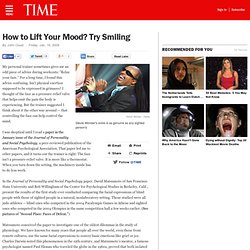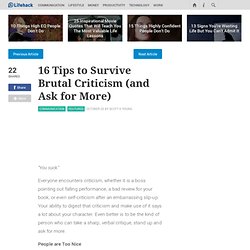

Memory. 8 Things to Know About Concentrating. “Music helps me concentrate,” Mike said to me glancing briefly over his shoulder.

Mike was in his room writing a paper for his U.S. History class. On his desk next to his computer sat crunched Red Bulls, empty Gatorade bottles, some extra pocket change and scattered pieces of paper. In the pocket of his sweat pants rested a blaring iPod with a chord that dangled near the floor, almost touching against his Adidas sandals. On his computer sat even more stray objects than his surrounding environment. Mind Mapping Methods. 5 Ways To Hack Your Brain Into Awesomeness. Much of the brain is still mysterious to modern science, possibly because modern science itself is using brains to analyze it.

There are probably secrets the brain simply doesn't want us to know. But by no means should that stop us from tinkering around in there, using somewhat questionable and possibly dangerous techniques to make our brains do what we want. We can't vouch for any of these, either their effectiveness or safety. All we can say is that they sound awesome, since apparently you can make your brain... #5. So you just picked up the night shift at your local McDonald's, you have class every morning at 8am and you have no idea how you're going to make it through the day without looking like a guy straight out of Dawn of the Dead, minus the blood... hopefully.
"SLEEEEEEEEEP... uh... What if we told you there was a way to sleep for little more than two hours a day, and still feel more refreshed than taking a 12-hour siesta on a bed made entirely out of baby kitten fur? Holy Shit! 'speed reading' A Feel-Good Theory: A Smile Affects Mood. PUTTING on a sad face or a smile directly produces the feelings that the expressions represent, according to a new theory of how emotions are produced. This view elaborates on ideas proposed more than a century ago by Charles Darwin and William James, the philosopher and psychologist. It holds that facial expressions are not just the visible sign of an emotion, but actually contribute to the feeling itself. The theory does not propose that facial expressions are more important than thoughts or memories in prompting emotions. But it points to the physiology of facial expression as a cause of emotions in its own right. The theory has been gaining gradual support over the last decade among psychologists.
In one, researchers found that simply inducing people to place the muscles of their face in the pattern of a given emotional expression elicited that feeling. To be sure, no one suggests that putting on a happy face can cheer up someone who is in mourning. Dr. In Dr. In 1984, Dr. How to Lift Your Mood? Try Smiling. My personal trainer sometimes gives me an odd piece of advice during workouts: "Relax your face.

" For a long time, I found this advice confusing. Isn't physical exertion supposed to be expressed in grimaces? I thought of the face as a pressure-relief valve that helps emit the pain the body is experiencing. But the trainer suggested I think about it the other way around — that controlling the face can help control the mind. I was skeptical until I read a paper in the January issue of the Journal of Personality and Social Psychology, a peer-reviewed publication of the American Psychological Association. In the Journal of Personality and Social Psychology paper, David Matsumoto of San Francisco State University and Bob Willingham of the Center for Psychological Studies in Berkeley, Calif., present the results of the first study ever conducted comparing the facial expressions of blind people with those of sighted people in a natural, nonlaboratory setting.
See TIME's Pictures of the Week. Emotions Color Wheel. 16 Tips to Survive Brutal Criticism (and Ask for More) “You suck.”

Everyone encounters criticism, whether it is a boss pointing out falling performance, a bad review for your book, or even self-criticism after an embarrassing slip-up. Your ability to digest that criticism and make use of it says a lot about your character. Even better is to be the kind of person who can take a sharp, verbal critique, stand up and ask for more.